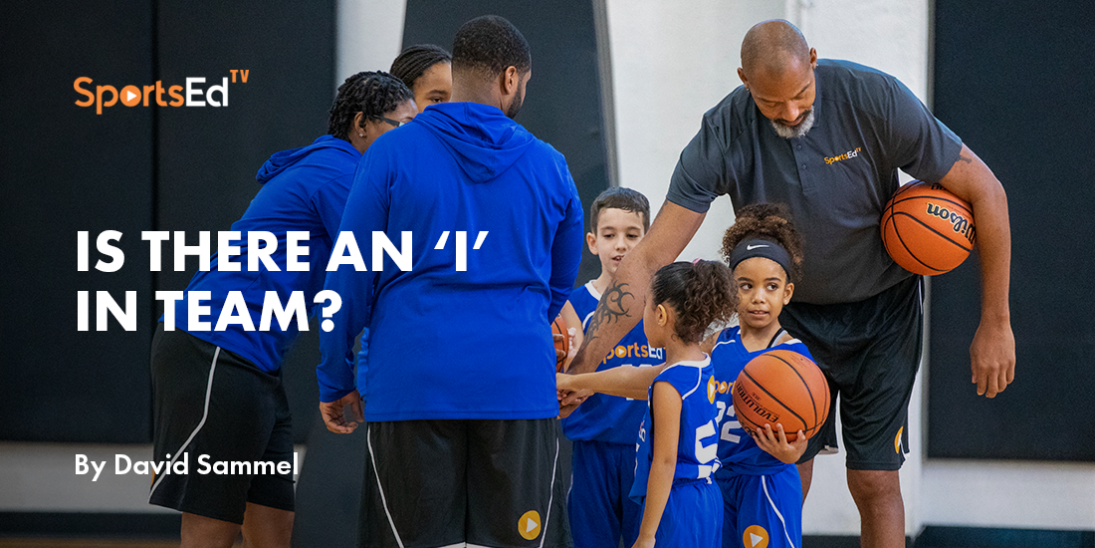Tennis
Welcome and thanks for visiting...

Building Trust in Teams

Excerpted from the book for purpose #1. where David Sammel is one of the 18 business leaders that contributed to the book by sharing their highest value advice.
What Does Trust Mean?
True trust between teammates is rare. Superficial trust is common. The depth of understanding and communication that precipitates an unbreakable bond is underestimated. A high level of empathy and maturity is needed to accept each team member as a whole – warts and all.
It is a decision to believe and know that everyone in the team has the same objective and intent, that everything that anyone does, is done for the good of the team. This means that any mistake is instantly forgiven and the rest of the team will do their utmost to help rectify or mitigate the error.
There is an understanding that attempting to achieve anything significant will come with challenges and often the risks that must be taken in meeting these challenges by default will lead to mistakes.
The quest for a team that intrinsically acts as one is built on experiences that bind people together and take time. This journey is one of the levels, a journey that cannot exist without a clear intention to reach the goal of deep trust. The perseverance to become open and honest about feelings and doubts so that these can be addressed and understood is how the process grows. It is both a painful and glorious journey to explore ways to build a team's psychological strength through forensic examination of the self and how that affect others, so that performance becomes an orchestra of each person's strengths complementing weaknesses, and when it fails there is support and acceptance without a hint of blame, only a determination to improve and 'go again'.
How Can I Build Trust In My Team
I’m going to highlight a live example of a doubles team in tennis on a quest to become the best in the world whose journey is not yet complete but is a wonderful example of how difficult the stages of development are as they climb the levels of teamwork.
This is a case study of a recorded conversation from a time when the team was at a low point and trust was being severely tested after a string of losses.
David Sammel (DS): I'm going to lead because I think some things need to be heard, which I started in New Zealand and Australia where I said – "if you're going to be good, you have to be incredibly honest and in doing so, you will feel vulnerable."
In life everything is perception, and most people just take the perceptions and run with them. But if you’re going to be a top doubles team, you’ve got to know what each other’s perceptions are. That means opening your mind to each other, with your inner thoughts. When people say there’s no hiding place, very few people know what no hiding place means. It means you are sharing what's in your head, and it is a skill that needs learning.
That often means hearing difficult things, but if you don't get to that point then you will never have the honesty needed for sustained growth and success.
You might ask how there are some teams out there that do extremely well, who maybe haven’t been through this? Well, my theory is that a lot of great results are achieved through momentum and self-responsibility.
When two players that are very self-responsible, get together and get momentum, they can do some amazing things as a team and when they run out of steam they usually split. Then there are the special teams that stay together, like the Bryan brothers. I would say that the Bryans are probably the greatest ever because they are twins. They intrinsically knew what each other’s thoughts were, and then they were brave enough to go there over and over again until they just operated very openly with each other. That made for an amazing team.
It’s very unusual for a team to go through a process where they truthfully open up to each other. You guys are fairly honest but have some way to go.
Your relationship is great off the court and great on the court most of the time. But there are some cracks under pressure, and that’s what we’ve got to eliminate.
Individual connection is great, but today I saw, and occasionally have seen it before, where you go into your silos. You're each in your minds.
Although you're talking about the points, there's no real connection anymore. You're each stuck in your stuff. Remember, at that point, that's when some perceptions deep inside start to play out in your minds about each other. That's what we have to explore.
Leadership. This is the big question and I’m going to go through my perception of what’s happened, and why you’re not yet a team of leaders.
If you're going to be the best, you've got to find a way for two alpha males to co-exist as leaders. It's inherently unstable. You've got two alpha males who are both leaders. You wouldn't be ranked as high as you are if you hadn't been able to lead. This is not unique to you as a team. All teams have this problem because if you're going to be successful, you have to survive in a sport full of alpha males.
Trust Your Team To Do Their Job
One becomes the leader, either by acceptance or by consent, or what often happens, is in each person's mind, they both believe they’re the leader, but then never actually verbalize it.
They are either successful for a while, or when they are not, they split. Therefore, so few good doubles teams stay together through the tough times.
In tough times, if in your mind you believe you’re the leader, you can easily think you’re the better player. So why would you stay with anybody who is not pulling their weight?
This is the problem most go through. But I believe that you are mature enough, and want success enough to go through this process to understand how leadership is going to work. Two highly driven, alpha males can lead, but both must come to the table with openness, even if that means pushing through the initial discomfort, to find the optimal operating mindset.
Don’t forget, we’re talking about high-level tennis as well as anyone who operates at the elite level. It may not involve obvious or huge shifts in mindset. Often success is more about subtle shifts in the mind.
You said something to me today that I think opened this up for me. You said when X served at 4-1 in the breaker and had a misthrow, that made you nervous because you thought he was getting nervous.
Player Y (Y): But it’s not an excuse. It was my fault, I know, I missed this easy volley. I put the wrong words in my mind at that moment.
DS: Yes, but that is because I think you’re starting to feel a responsibility, that under pressure, you have to come through because he might not. That’s why the wrong words enter your mind, and that needs to change.
I’ll say this: all blame and excuses start as good reasons. Good reasons are a more sophisticated way of having an excuse.
This is why I say, inside your head, there’s a slightly deeper thought which is, “I was nervous because I felt his nerves and by default, I missed because of him”, yeah?
Y: Mm-hmm, yes.
DS: But at 4-1, you guys were dominating but your perception was X got nervous. That perception caused you to tighten up. That can’t happen. But it’s real because it happened to you. This is where the trust in each other becomes real. At that moment, you have to trust that X will do his job, whether he has a misthrow or not.
Nobody is perfect, so screw-ups will happen. What I saw today, which was disappointing, was due to the underlying stuff inside your heads. Once Y had mucked up, there was no real fight because you were each in your own space. Neither of you grabbed a hold of the other one to say, “We’re connected. We have to go again.”
It can happen where one goes into himself, but, when both of you go into yourselves, then the talk between you is just BS because you’re both not there. The goal of conversations like these is to help you become more aware so you have a better chance to snap out of it. You fight to the very end, no matter what screw-ups have happened. There is so little wrong with the level of your tennis. There’s a little more wrong with how you guys are leading and taking responsibility on the court.
Player X (X): Today at 4-1, I wasn’t nervous on the serve. I think I caught the ball maybe three times in the match, and this was one of those times, but it wasn’t anything special. It’s the negative way you reacted to the situation that bothered me.
Y: Yeah. I know it was my fault, I apologize.
X: But this is what we’re talking about now. It’s like the stuff underneath that makes you have this reaction because it comes from somewhere.
DS: I don’t think your reaction to Y missing the volley, was strong enough either in terms of support. We know in a breaker if you miss a sitter, it hurts. The person who hasn't missed must step up in that situation and go, "No biggie, it happens. Let's go again!" I'm not sure the second mistake would have happened had there been positive interaction with the first miss. Y needed your leadership and a show of confidence, after the miss.
Today this is what it came down to what were you about? There was nothing left from 6-5. You weren’t about anything. The other team could feel this and immediately relaxed and you guys were just muted. You did not push back.
That’s because there’s underlying stuff going on that needs to be swept away. I said to Y earlier today it’s like having a very clean room and you’ve got to go in with a searchlight and find the little teeny bits of dust and get rid of them.
Once you’ve gotten rid of that dust, it’s not like second-guessing, “Did we get rid of that dust, or not?”
No, get rid of that dust and it’s gone. Look, you guys are good together. We’re sitting here well inside the top 25 in the world this year. However, I don’t think either of you, yet, get how strong you must be to win a Slam.
What underlines where you are at this point is a need to step up and get rid of any doubts about each other. When you doubt each other you are basically doubting the team and you can’t do that anymore. Nerves are one thing; doubt is another.
“I’m tight and I need help, give me more”, or “I’m tight but I’m going to step up”. That’s how you speak about nervousness. We all know that you won’t come through every time, but it’s about winning more often. Knowing that this is how you will deal with tension, you can get rid of the BS that if you feel the other guy is nervous, that tightens you up. You feel him tight, you read the situation and say “Come on, I trust you, you can do this.”
Then get on with your job.
You’re both good enough tennis players to do magical stuff in this game. Yes, you have to work at this, because don’t think that this is it ... the awareness and understanding is only the first step.
The second step is becoming better and better at implementation.
The third step is where your trust is so high you rarely need to implement because you just are.
When you just are, is when you win something huge.
I want to emphasize that this is not just about tennis. If you think this is about tennis you’ve missed the point. This is about self-leadership, leading, leading under pressure, and what can and does go through the minds of high achievers in leadership roles.
Find more from David Sammel -
https://www.lockerroompower.com
https://twitter.com/DaveSammel
Insert from the book: Fit for purpose #1. You can find this book on amazon.





